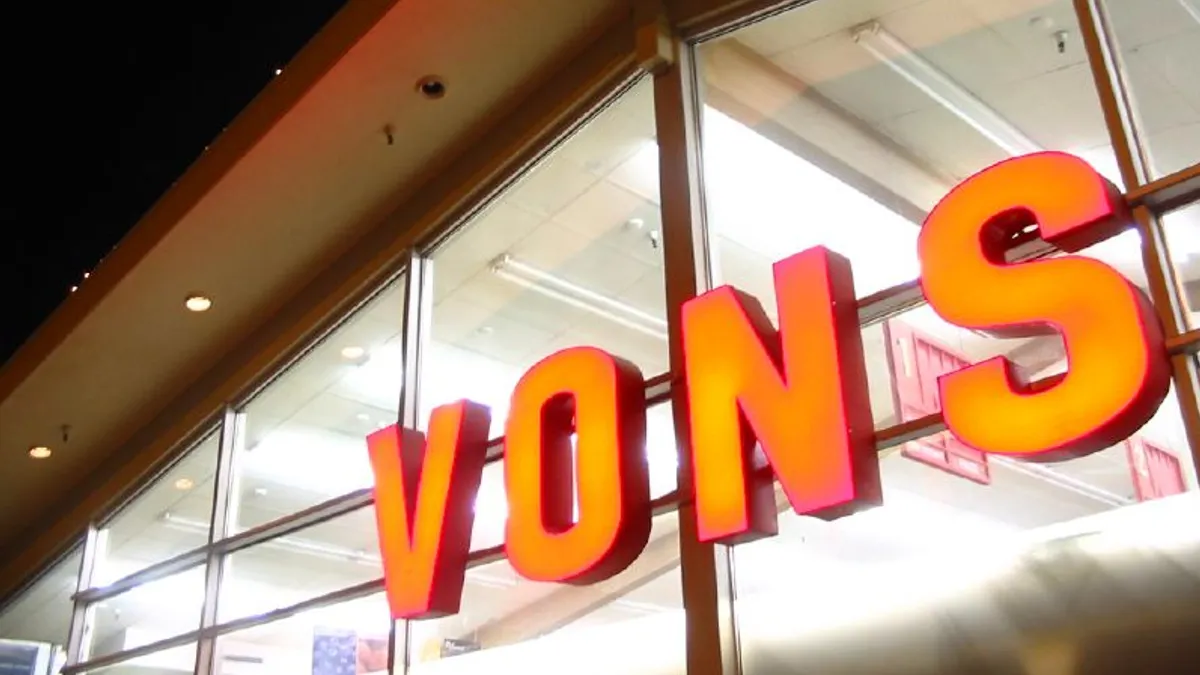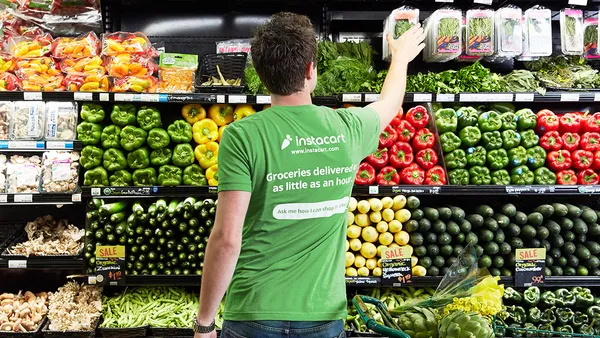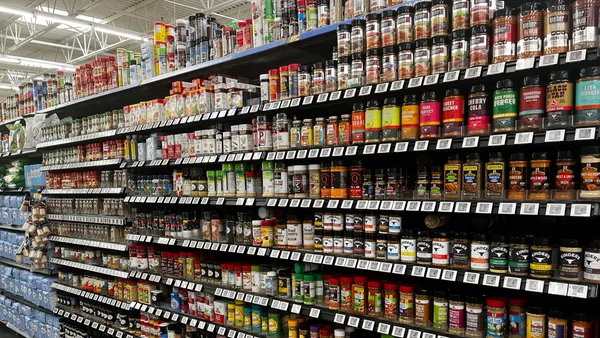Dive Brief:
- Albertsons has partnered with vertical farming company Plenty to supply greens to 430 stores in California, according to a press release.
- Plenty will supply four products to Albertsons, Vons and Pavilions stores: baby arugula, baby kale, crispy lettuce and mizuna mix. The farming tech firm currently supplies greens to select Andronico's and Safeway locations in the Bay Area, as well as Whole Foods stores and local grocers like Draeger's Market.
- Plenty’s newest farm, known as “Tigris,” grows 1 million plants at a time and processes 200 plants per minute. The facility is powered by wind and solar energy, and uses less than 1% of the land and 5% of the water consumption of traditional farming.
Dive Insight:
With this deal, Albertsons becomes the latest grocery chain to turn to vertical farming as a supply line for its produce departments.
The grocer’s fresh supply chain remains strong during high demand, according to Albertsons. But indoor agriculture promises to reliably provide fresh, flavorful produce year-round and at a lower cost than conventional agriculture. Plenty’s facilities use LED lighting and sensor technology to provide plants with the precise resources needed to grow, and without utilizing any pesticides.
Founded in 2013, Plenty has steadily accumulated financial backers as well as grocery and restaurant contracts. Jeff Bezos and Softbank are among its funders. In 2018, Plenty began sourcing greens to local retailers, including online grocer Good Eggs along with local grocers like Faletti Foods and Roberts Market. Earlier this year, it debuted at several Whole Foods and Safeway locations in the Bay Area.
Albertsons joins retailers like Kroger, Ahold Delhaize and Meijer in signing major distribution deals with indoor farming companies. Kroger, though its Roundy’s division, partners with BrightFarms, which supplies greens to more than 2,000 grocery stores. Last year, Kroger began testing in-store mini farms at QFC stores in Seattle, while this month Publix brought a small hydroponic growing operation to one of its Greenwise stores.
Although vertical farming is often touted as the future of agriculture, there are numerous failed companies that have crumpled under high costs. Firms like Plenty say their technology is improving and becoming more cost effective, and operators are learning as they scale up.













